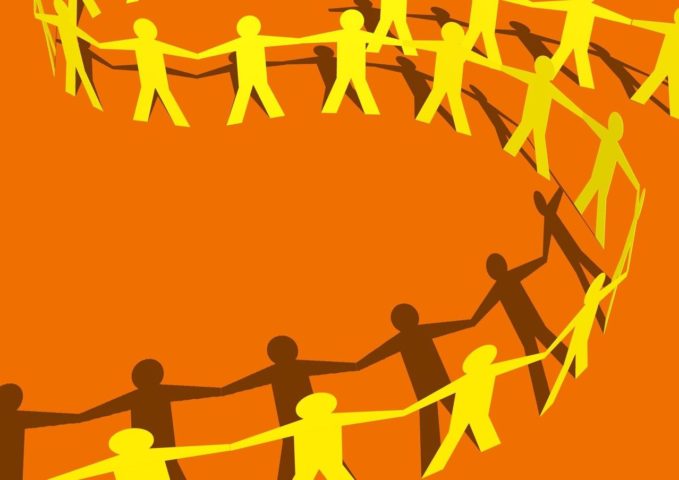How to Relate part 1
Life to the Full
Feb. 12, 2017 | How to Relate, Part 1
Our relationships with God and people have some similarities and some important differences.
Similarities:
- They both involve sentient (thinking and feeling) beings.
- We are built to long for both types of relationships.
Differences:
- God does not change. He is not random, arbitrary, subjective, or fickle.
- Our relationships with others are often dependent on our actions or performance. Our relationship with God depends on His unchanging character and promises.
- Our love has a lot of conditions. God’s love (through the cross) has only one: Accept, Believe, and Confess Jesus.
A key theme of the New Testament writers is that our response to God’s great love for us is to love others in the same way.
- We are taught to take on God’s approach to relationships
- We sometimes apply the way people work to God. We think our relationship with Him is similarly fragile.
1 John 4:7-21 (NIV)
God’s Love and Ours
7 Dear friends, let us love one another, for love comes from God. Everyone who loves has been born of God and knows God. 8 Whoever does not love does not know God, because God is love. 9 This is how God showed his love among us: He sent his one and only Son into the world that we might live through him. 10 This is love: not that we loved God, but that he loved us and sent his Son as an atoning sacrifice for our sins. 11 Dear friends, since God so loved us, we also ought to love one another. 12 No one has ever seen God; but if we love one another, God lives in us and his love is made complete in us.
13 This is how we know that we live in him and he in us: He has given us of his Spirit. 14 And we have seen and testify that the Father has sent his Son to be the Savior of the world. 15 If anyone acknowledges that Jesus is the Son of God, God lives in them and they in God. 16 And so we know and rely on the love God has for us.
God is love. Whoever lives in love lives in God, and God in them. 17 This is how love is made complete among us so that we will have confidence on the day of judgment: In this world we are like Jesus. 18 There is no fear in love. But perfect love drives out fear, because fear has to do with punishment. The one who fears is not made perfect in love.
19 We love because he first loved us. 20 Whoever claims to love God yet hates a brother or sister is a liar. For whoever does not love their brother and sister, whom they have seen, cannot love God, whom they have not seen. 21 And he has given us this command: Anyone who loves God must also love their brother and sister.
John lays out an important flow of love: We receive God’s love, we give love to others.
Being completely and unconditionally loved allows us to live without fear. God’s right relationship with us gives us the strength to love others boldly – to risk rejection, to “put yourself out there.”
The Message:
To Love, to Be Loved
17-18 God is love. When we take up permanent residence in a life of love, we live in God and God lives in us. This way, love has the run of the house, becomes at home and mature in us, so that we’re free of worry on Judgment Day—our standing in the world is identical with Christ’s. There is no room in love for fear. Well-formed love banishes fear. Since fear is crippling, a fearful life—fear of death, fear of judgment—is one not yet fully formed in love.
19 We, though, are going to love—love and be loved. First we were loved, now we love. He loved us first.
Our initial relationship with God depends on us accepting His Son as Savior, not on our goodness. But our continued relationship with Him depends on us entering into the process of becoming more like His Son through the power of the Spirit.
I Cor. 6:9-20, Galatians 5:19-21, Romans 6:1-14
If we DO sin, God is faithful to forgive when we confess our sins and turn away from them.
This is a clear, up-front, set of standards God gives us – He makes it simple to understand how to stay in right relationship with Him.
People are not like that. And because they are not, we have to sometimes have boundaries on human relationships. More on that next week.

